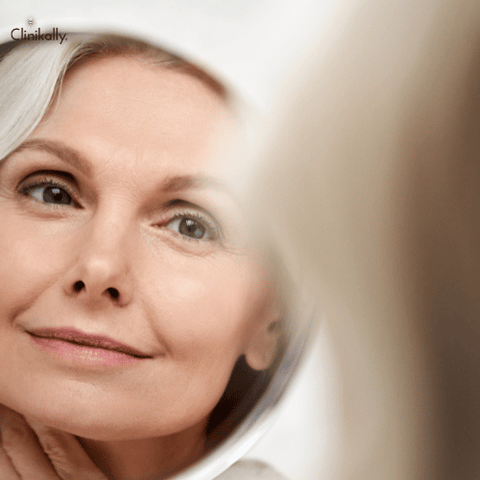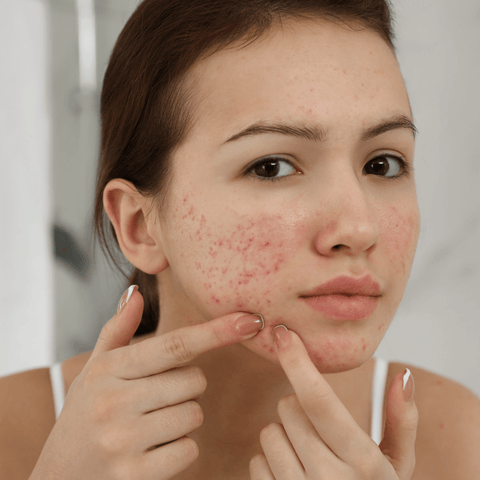If you've been exploring the realm of skincare, chances are you've come across the term 'retinoids'. These powerful substances are lauded for their remarkable abilities - from smoothing fine lines to lightening dark spots, and providing an overall youthful glow. But what exactly are retinoids? How do you incorporate them into your skincare routine, and are there any side effects you should be aware of? These questions and more will be addressed in this detailed guide. We will unravel the mysteries surrounding retinol creams, retinol serums, and even the best retinol products available in India. So whether you're a skincare novice or simply eager to expand your knowledge about retinoids, this guide is for you.
What are Retinoids?
Retinoids, as a term, refers to a group of compounds that are derived from Vitamin A. They've been a cornerstone of dermatology and skincare for decades due to their wide-ranging benefits. But before we delve into those benefits, let's get a clearer picture of what retinoids are and their various types.
Types of Retinoids
The term 'retinoids' is an umbrella term that encompasses several different types of Vitamin A derivatives, each with varying degrees of potency. Here's a brief rundown of the most common ones:
-
Retinol: This is perhaps the most commonly known retinoid, often found in over-the-counter skin care products. It's less potent than prescription retinoids, but still delivers noticeable benefits with consistent use.
-
Retinaldehyde: A step up in potency from retinol, retinaldehyde is also found in over-the-counter products and is closer to prescription strength.
-
Adapalene (Differin): This is a synthetic retinoid that is commonly used for acne treatment. It's available over-the-counter in some countries.
-
Tretinoin (Retin-A): A potent, prescription-strength retinoid that's often used for more severe skin issues like acne and significant signs of ageing.
-
Tazarotene (Tazorac): This is another prescription-strength retinoid, often used for conditions like psoriasis and acne.
|
Type of Retinoid |
Potency |
Common Use |
|
Retinol |
Low |
Over-the-counter skincare |
|
Retinaldehyde |
Medium |
Over-the-counter skincare |
|
Adapalene (Differin) |
Medium |
Acne treatment |
|
Tretinoin (Retin-A) |
High |
Prescription skincare |
|
Tazarotene (Tazorac) |
High |
Prescription skincare |
These varying types of retinoids work at different speeds and can have different effects on the skin. As we move forward, we'll understand more about how they work, and how to choose the one that's best suited for your skincare needs.
Benefits of Retinoids for Skin

If you're considering introducing retinoids into your skincare routine, it's important to understand the benefits they can bring to your skin. These Vitamin A derivatives have been scientifically proven to impact your skin positively in multiple ways. Let's explore some of these benefits:
-
Acne Treatment: Retinoids, especially prescription-strength ones like tretinoin and adapalene, can be very effective in treating acne. They work by promoting skin cell turnover, preventing pores from clogging, and reducing inflammation.
-
Anti-aging: Retinoids are widely known for their anti-aging properties. They can reduce the appearance of fine lines and wrinkles by boosting collagen production, which gives skin its elasticity and reduces signs of aging.
-
Skin Brightening: If you're struggling with a dull complexion, retinoids might be your answer. They can slough away dead skin cells and promote new, healthier ones, giving your skin a brighter, more youthful appearance.
-
Hyperpigmentation: Retinoids can help lighten dark spots and even out skin tone by accelerating skin cell turnover and inhibiting melanin production.
-
Improves Skin Texture: Regular use of retinoids can lead to smoother skin by stimulating new collagen and skin cell production.
Remember, the effectiveness of retinoids can vary based on their type and strength. Over-the-counter retinol might be sufficient for mild skin concerns, but for more severe conditions, a prescription-strength retinoid might be necessary. Always consult with a dermatologist or skin care professional to determine which retinoid is right for your skin.
Is Retinoid Safe for Skin?
Retinoids, when used correctly, are generally safe for most skin types. However, they can cause some side effects, especially when you first start using them. Here's what you need to know:
-
Irritation: Retinoids can cause redness, dryness, and flaking, especially during the initial weeks of use. This is typically a sign that your skin is adjusting to the product.
-
Sun Sensitivity: Retinoids can make your skin more sensitive to the sun. It's crucial to wear sunscreen daily when you're using retinoids, even on cloudy days.
-
Not Suitable During Pregnancy: Retinoids, especially prescription ones, are not recommended during pregnancy or breastfeeding due to potential risks to the baby.
If you experience severe or prolonged irritation, or if you're pregnant or breastfeeding, it's best to stop using retinoids and consult with a dermatologist.
To minimise potential side effects, it's advisable to start with a lower-strength retinoid and gradually increase the strength as your skin adjusts. It's also recommended to apply retinoids on dry skin and start by using them every other night, gradually working up to nightly use as tolerated.
Remember, skincare is a personal journey, and what works well for one person might not work as well for another. Always listen to your skin and adjust your routine accordingly. Incorporating retinoids into your skincare routine can bring about significant improvements, but it's important to use them safely and responsibly.
How to Incorporate Retinoid in Your Skincare Routine

Adding retinoids to your skincare routine can be a game-changer, but it's crucial to do it correctly to reap the maximum benefits and minimise potential side effects. Here is a step-by-step guide on how to incorporate retinoids into your skincare routine:
-
Start Slowly: If you're new to retinoids, begin by using them 2-3 times a week. Gradually increase the frequency as your skin becomes accustomed to it.
-
Less is More: You don't need a lot of product. A pea-sized amount should be enough for your entire face.
-
Apply to Dry Skin: Apply your retinoid to dry skin to reduce potential irritation. Wait about 20-30 minutes after washing your face to apply the retinoid.
-
Use at Night: Retinoids break down in sunlight and can increase your skin's sensitivity to the sun. It's best to apply them at night and wear sunscreen during the day.
-
Layer Correctly: If you're using a retinoid with other skincare products, apply it after cleansing but before moisturising. The general rule of thumb is to apply skincare products from thinnest to thickest consistency.
-
Don't Forget Moisturiser: Using a moisturiser can help combat the dryness and irritation that can come with retinoid use. Wait a few minutes after applying your retinoid to apply your moisturiser.
-
Be Patient: Retinoids take time to work. You might start seeing some improvements in 6-8 weeks, but it can take three to six months to see significant changes. Consistency is key.
Lastly, as with any skincare product, individual experiences can vary with retinoids. It's important to listen to your skin and adjust accordingly. If you experience severe or persistent irritation, or if you're not seeing results after several months, it might be worth consulting with a dermatologist or skin care professional.
Bottom Line
Navigating the world of retinoids can feel overwhelming, but with the right knowledge, these powerhouse ingredients can be a transformative addition to your skincare routine. From combating acne to reducing signs of ageing, retinoids offer a wide range of benefits that can lead to healthier, more radiant skin.
Remember, starting with a lower-strength retinoid and gradually building up, as well as consistently using sunscreen, can help manage potential side effects. And while retinoids can deliver impressive results, they're not an overnight miracle. Patience and consistency are key to seeing the full benefits of retinoids.
Whether you choose an over-the-counter retinol cream or a prescription-strength retinoid, always consult with a skincare professional to determine the best choice for your individual skin needs. After all, every skin is unique, and understanding what works best for yours is the first step towards achieving the healthy, glowing skin you desire.
















